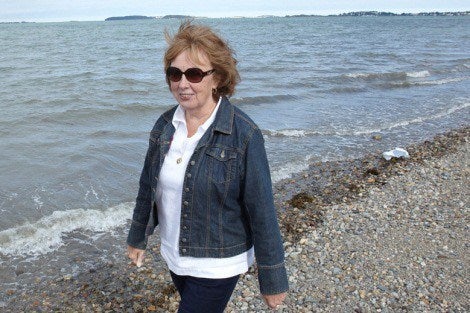What would become one of the largest and most important cohort studies examining the role of environment and behavior on disease began modestly in 1976, when a small group of researchers from HSPH, Harvard Medical School, and Brigham and Women’s Hospital, led by HSPH’s [[Frank Speizer]], designed and launched a questionnaire for a small group of female nurses ages 30 to 55. The Nurses’ Health Study’s goal was to clarify the connection between smoking history, use of oral contraceptives, and subsequent disease.
The study soon expanded to include 120,000 female nurses. The questions broadened to include participants’ medical history, health status, and individual habits such as whether they took vitamins or replacement hormones, whether they attended religious services, and how many friends they had. In 1989, [[Walter Willett]], now chair of the HSPH Department of Nutrition, launched a companion study known as Nurses’ Health Study II, which enlisted another 116,000 participants to delve even more deeply into questions of diet and nutrition.
Emily O’Connell has had a longer relationship with the Nurses’ Health Study (NHS) than with her own husband.
The Quincy, Massachusetts–based school nurse has been married for 23 years. She’s been filling out the NHS questionnaire for more than 30, though she doesn’t remember exactly when she started. All she remembers is getting an invitation in the mail while she was a nursing student and figuring it would fulfill a degree requirement to take part in scientific research.
“I had just completed my master’s degree and had suffered the experience of having to recruit participants for studies,” she recalled. “So I joined just to help out the researchers. I had no idea how influential it would be in the future. My close friends, who understand the importance of what I’m doing, really ooh and goo and are proud of me. They’re a little jealous that I’m part of this famous study.”
For the last three decades, filling out that annual form on women’s health— first with paper and pencil, then on computer, while also offering up the occasional blood sample and saliva cheek swab—has become one of her proudest achievements. O’Connell, 62, displays an NHS plaque on the wall of her den, and every year when the questionnaire arrives, she finds herself nattering away about it to her friends, family, and anyone who will listen. “It probably takes me a week before and a week after to stop talking about it,” she said.
O’Connell’s own health has remained stable; she doesn’t smoke, she doesn’t drink heavily, and she never eats junk food. Still, answering the survey questions has made her more aware of her personal choices. “I didn’t think about whether or not I ate a green vegetable every day or whether I ate an orange vegetable five times a week,” she said. “I just do.”
But logging in her daily activity diary made her realize how little she exercised. “I was learning that I was a pretty sedentary person to start with,” she said. So for years, she’s been taking long daily walks along a beach near her house. O’Connell also decided against taking estrogen after menopause (as her mother had), after the NHS data suggested it may increase the risk of breast cancer. In fact, O’Connell’s doctor “was opposed to using hormone replacement therapy without extreme reason—because of the Nurses’ Health Study.”
O’Connell plans to stay in the NHS for the rest of her life. She’s even told her husband to notify the investigators when she dies. That way, researchers can add the circumstances of her death to their data. Granted, it’s possible her husband will forget, she said, but enough people know how much she’s valued her role in women’s health research that “they will harass him if he doesn’t do it.”
Nurses’ health study and physicians’ health study key findings
Nurses’ health study:
- Smoking dramatically raises the risk of coronary artery disease and stroke—but the risk is reduced within a few years after quitting smoking.
- Current use of oral contraceptives raises the risk of breast cancer and coronary heart disease, and current use of postmenopausal hormones increases the risk of stroke.
- Obesity strongly increases the risk of coronary heart disease, but protects against hip fractures.
- One or two alcoholic drinks per day reduce the risk of coronary heart disease, but raise the risk of breast cancer.
- A Mediterranean-type diet reduces the risk of coronary heart disease and stroke, while refined carbohydrates and trans fats increase the risk of heart disease.
Physicians’ health study:
- Daily low-dose aspirin decreases the risk of heart attack.
- Vitamin C and E supplements do not prevent major cardiovascular events, cancer, or eye disease.
* * * * *
Is there an event, person, or discovery in Harvard School of Public Health history that you’d like to read about? Send your suggestions to centennial@hsph.harvard.edu.
